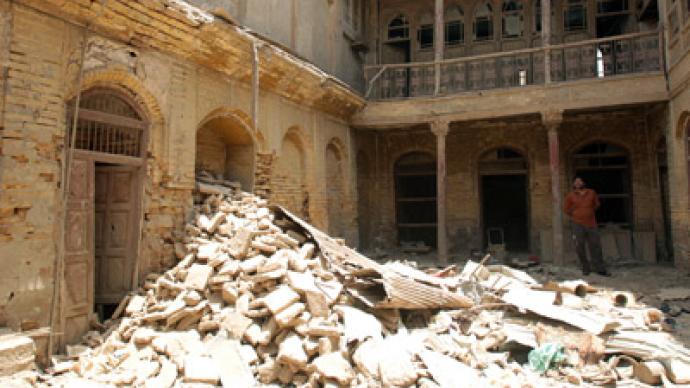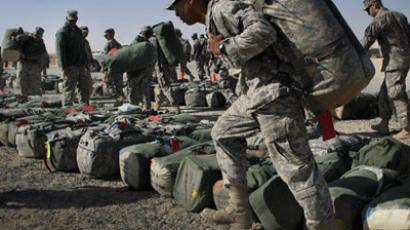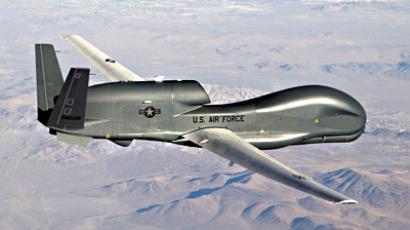US wasted up to $8 bln on Iraq reconstruction

Billions of taxpayer dollars are vanishing in Iraq as the government fails to properly monitor its spending. The U.S. has wasted an estimated $6 to $8 billion in its reconstruction effort in Iraq, largely due to poor reviews of contractor invoices.
In its final audit report, the Office of the Special Inspector General for Iraq Reconstruction Funds (SIGUR) said that of the $51 billion effort to reconstruct Iraq,“the precise amount lost to fraud and waste can never be known,”largely due to poor record keeping by the Pentagon and the Department of State.Inspector general Stuart Bowen, whose office spent more than $200 million tracking the reconstruction funds and producing reports, said a significant sum was wasted on inaccurate or inefficient service costs charged by contractors.In many cases, invoices were checked months after they had been paid. Additionally, the withdrawal of U.S. forces in Iraq, together with violence around the capital, made visits to check on reconstruction projects dangerous and expensive.“To make a movement outside the embassy grounds requires 48 hours of notice, three hardened vehicles and a couple of shooters in each vehicle, and limited time on site to carry out your mission,”the inspector general said.As a typical example of inefficient spending, one contractor charged the government $80 for a pipe fitting that could be purchased elsewhere for $1.41.Large funds were also squandered on a $35 million project to construct an international airport in Baghdad. Four years into the project, Bowen’s office estimated that half of the budget was“at risk of being wasted.”The inspector general found that too few contracting officers were in charge of validating large sums of money. In one instance, a single contracting officer was in charge of authorizing $2.5 billion in spending on a DynCorp contract for Iraqi police training.DynCorp contractors were previously overpaid, and the State Department was once required to recover more than $60 million from the company.But the problem is rooted deeper than just the reconstruction effort.In 2011, the Associated Press reported that up to $60 billion had been wasted in Afghanistan and Iraq, which it predicted would increase as the U.S. withdraws its troops.“Much of the contingency-contract waste and fraud could have been avoided,”stated a 2011 report by the Commission on Wartime Contracting in Iraq and Afghanistan.“Unless changes are made, continued waste and fraud will undercut the effectiveness of money spent in future operations, whether they involve hostile threats overseas or national emergencies here at home requiring military participation and interagency response.”Nearly a third of the funds spent on contracting were fraudulently used or wasted, said Sen. Claire McCaskill (D-Mo.) in 2011.“Contracting was out of control,”the senator said last August, after a trip she took to Iraq.“It was the wild, wild West. There was no competition. There was money being wasted. There were pallets of money disappearing. There were things being built that weren’t even functioning.”One year later, taxpayer dollars continue to be wasted. Although SIGIR investigated $635 million in spending since its founding in 2004, much of the $51 billion Iraqi reconstruction budget may continue to disappear undocumented and unverified.














